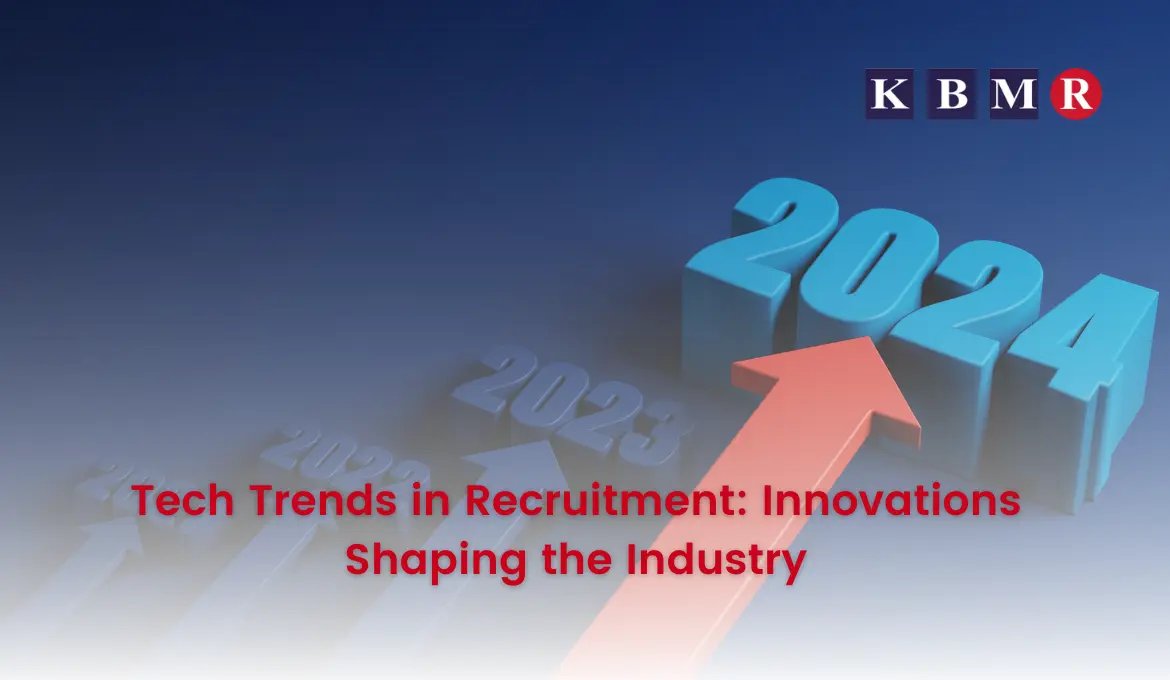As technology advances rapidly, the recruitment industry is changing rapidly. From automating tedious tasks to enhancing candidate experiences, tech innovations are reshaping how organisations attract, assess, and hire talent.
This blog will delve into the latest tech trends in recruitment that are transforming the industry and enabling entities to remain competitive in the fast-moving world of talent acquisition.
Artificial Intelligence (AI) and Machine Learning (ML)
-
Automated Candidate Screening: AI-powered tools are streamlining the initial stages of recruitment by automating candidate screening. These systems analyse resumes, assess skills, and match candidates to job requirements, significantly reducing the time spent on manual screening.
-
Predictive Analytics for Hiring: Machine learning algorithms can examine past data to forecast candidates' success in specific roles. By using predictive analytics, recruiters can base their decisions on data, increasing the chances of hiring candidates who fit well with the organisation's objectives.
-
Chatbots for Candidate Interaction: Chatbots enhance candidate engagement by responding instantly to queries, guiding candidates through the application process, and conducting initial interviews. This technology ensures a seamless and efficient experience for applicants.
Virtual Reality (VR) and Augmented Reality (AR)
-
Virtual Job Previews: VR is being used to offer virtual job previews, allowing candidates to experience a day in the life of a role before applying. This immersive experience helps candidates better understand job expectations and culture, leading to more informed career decisions.
-
Augmented Reality in Onboarding: AR transforms the onboarding process by overlaying digital information in the real world. New employees can use AR to access relevant information, training materials, and interactive guides, enhancing the onboarding experience.
Video Interviewing Platforms
-
Asynchronous Video Interviews: Video interviewing platforms enable asynchronous interviews, allowing candidates to record responses to pre-set questions at their convenience. This flexibility streamlines the interview process and accommodates candidates from diverse locations and time zones.
-
AI-Enhanced Video Assessment: AI is incorporated into video interviews to assess candidates beyond verbal responses. Facial expressions, tone, and body language are analysed to provide insights into candidates' soft skills and suitability for the role.
Applicant Tracking Systems (ATS) 2.0
-
Advanced-Data Analytics: Modern ATS systems have advanced analytics capabilities, providing recruiters valuable insights into recruitment metrics. This data-driven approach helps optimise recruitment, identify bottlenecks, and enhance decision-making.
-
Integration with AI Tools: ATS platforms integrate AI tools to enhance candidate sourcing and screening. This synergy between AI and ATS systems improves efficiency, reduces bias, and allows recruiters to focus on building meaningful connections with candidates.
Mobile Recruitment Apps
-
Mobile-Optimised Application Processes: The widespread use of mobile devices has spurred the creation of recruitment apps tailored for mobile use. These apps streamline the application process, making it convenient for candidates to apply on the go and improving the overall candidate experience.
-
In-App Messaging and Notifications: Mobile recruitment apps include in-app messaging and notifications to update candidates about their application status, interview schedules, and other important information. This real-time communication enhances engagement and transparency.
Blockchain in Recruitment
-
Secure Candidate Verification: Blockchain technology is being explored for secure candidate verification. This ensures the authenticity of candidate credentials and reduces the risk of fraudulent resumes, providing a more reliable foundation for hiring decisions.
-
Smart Contracts for Recruitment Agreements: Smart contracts, supported by blockchain technology, can automate and secure recruitment agreements. This includes contract terms, payments, and other aspects of the hiring process, streamlining negotiations and reducing administrative overhead.
Cybersecurity in Recruitment
-
Protecting Candidate Data: Cybersecurity is paramount as the recruitment process becomes more digitised. Ensuring the protection of candidate data, including personal and sensitive information, is crucial to building trust and compliance with data protection regulations.
-
AI-Powered Threat Detection: AI-driven cybersecurity tools detect and respond to potential threats. These tools can analyse patterns, identify anomalies, and safeguard recruitment platforms from cyberattacks.
Conclusion
The tech trends in recruitment outlined above represent a paradigm shift in how organisations attract, assess, and engage with talent. Embracing these innovations not only streamlines the recruitment process but also ensures that organisations remain competitive in the dynamic landscape of talent acquisition. As the industry evolves, keeping up with these tech trends will be crucial for recruiters and HR professionals aiming to harness technology's full potential in building robust, diverse, and dynamic teams.





